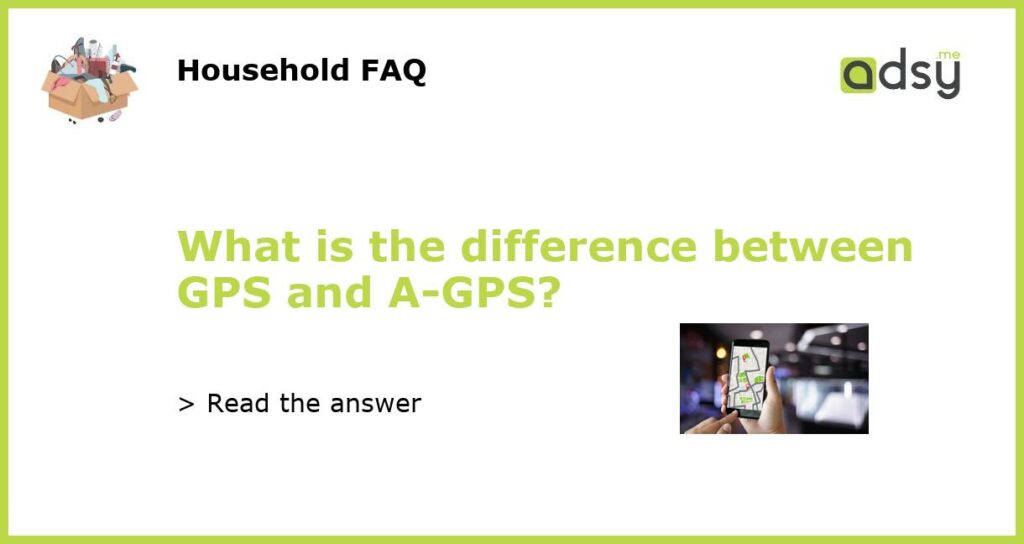The Basics: GPS vs A-GPS Explained
GPS (Global Positioning System) and A-GPS (Assisted GPS) are two terms that are commonly used when it comes to location-based services. Although both technologies involve tracking a user’s location in real time, there are some fundamental differences between GPS and A-GPS.
How GPS Works
GPS is a satellite-based navigation system that consists of a network of orbiting satellites. These satellites emit signals that are picked up by a GPS receiver, which then calculates the receiver’s exact location on the planet’s surface through trilateration. GPS is highly accurate and can be used anywhere in the world, but it can be slow to acquire a signal and can struggle to work indoors or in areas with poor signal.
What is A-GPS?
A-GPS, on the other hand, is a technology that enhances the performance of GPS. Instead of relying solely on satellite signals, A-GPS uses additional information from sources such as mobile networks, Wi-Fi hotspots, and cell towers to assist the GPS receiver in quickly acquiring a signal and improving its accuracy. A-GPS has become increasingly popular in recent years, particularly in urban areas where satellite signals may be obstructed or weak.
The Pros and Cons of GPS and A-GPS
The main advantage of GPS is its wide coverage and high accuracy, which makes it ideal for outdoor tracking and navigation. However, GPS can sometimes take a long time to establish a reliable signal, and it is relatively weak indoors. A-GPS enhances the performance of GPS by providing assistance, but it may not work as well in remote or rural areas without good network coverage. A-GPS can also consume more battery power and may require an internet connection to work correctly.
Which One Should You Use?
The choice between GPS and A-GPS ultimately depends on your specific needs and circumstances. If you primarily use location-based services outdoors, GPS is likely sufficient and accurate enough. On the other hand, if you frequently use location-based services indoors or in urban areas, A-GPS may be a better choice due to its improved signal acquisition and accuracy. Ultimately, the best way to decide which technology to use is to experiment with both and see which one performs better for your needs.






